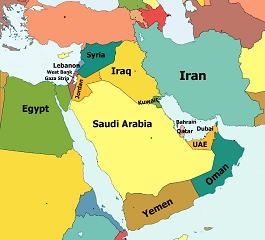Bomb Plot with a Yemeni Connection: A Christmas Gift for US War Plans

Washington’s blame game over the lapse of security that enabled a young Nigerian man to nearly set off explosives as an aircraft prepared to land in Detroit raises suspicions over how and why the incident happened.
President Obama and his aides have blasted the Pentagon and the CIA for a “catastrophic” failure in security measures. Yet – and this is telling – a miffed CIA has subsequently let it be known that it passed on information about the alleged bomber as early as November to the homeland security office, which works closely with the White House.
The official bluster in Washington suggests that elements within the US executive are looking for a scapegoat to blame in order to give an otherwise incredible bomb plot a semblance of credibility. A plot which would have us believe that a Nigerian militant with links to Al Qaeda in Yemen was able to evade global US security and surveillance in an attempt to kill some 300 air passengers on Christmas Day.
Now, there are calls for ramping up the “war on terror” against the will of the majority of US public who have become increasingly critical of Washington’s wasteful and destructive interventions in Iraq, Afghanistan and Pakistan, as well as its infringements of privacy and civil rights.
In particular, the ratcheting up of American public fear and anger is intended to permit the US government to open up a new front, with military involvement in Yemen.
Could the US government or shadowy elements within it have such a heinous game plan to sacrifice the lives of its own citizens in order to further geopolitical designs?
The historical evidence would confirm this. There is a tried and trusted formula used by the US (and other governments) in which alleged breaches of security become pretexts for a “just war”.
Some of the classic US pretexts for war include the “mysterious” sinking of the USS Maine off Cuba in 1898, which outraged the American public and precipitated the Spanish-American War. Victory elevated the US to imperial power status, giving it hegemony over South America in place of the Spanish.
The air attack on Pearl Harbour by Japan in 1941 also falls into this pattern. The death of more than 2,000 US personnel again infuriated American public opinion and prompted US entry into the Second World War.
Declassified documents, however, show that Washington was well aware of the impending “secret” Japanese attack, but allowed it to happen in order to rally a mood for war among the American public who had hitherto shown indifference. The US would emerge from the war as the undisputed Western economic and military power.
The Gulf of Tonkin Incident in 1964 is another classic pretext for war. The alleged clash with the North Vietnamese navy – since shown to be a non-event by Washington declassified papers – permitted President Lyndon Johnson to escalate the Vietnam War.
To the list of deception may be added the terror attacks of 9/11. In this case, known Al Qaeda suspects were allowed to enter the US, train as pilots and execute their plan to crash jumbo jets into New York’s Twin Towers and the Pentagon. The official US probe into how such a daring plot could have happened has been widely criticised as a “white wash”, leaving numerous questions unanswered by the authorities and security services.
But what is undeniable is the strategic US advantages that have resulted: the launching of wars in a region of the world that is vital for future energy supplies – interventions that would never have been accepted by American or world public opinion or allowed under international law.
So, just when the US public is growing increasingly weary of these trillion-dollar wars that are killing young Americans and innocent villagers with no end in sight and for no credible purpose, and just when Washington wants to expand its regional war into Yemen – we conveniently have the “Christmas Day bomb plot” with a Yemeni connection. Now, that is a gift for US war aims.

